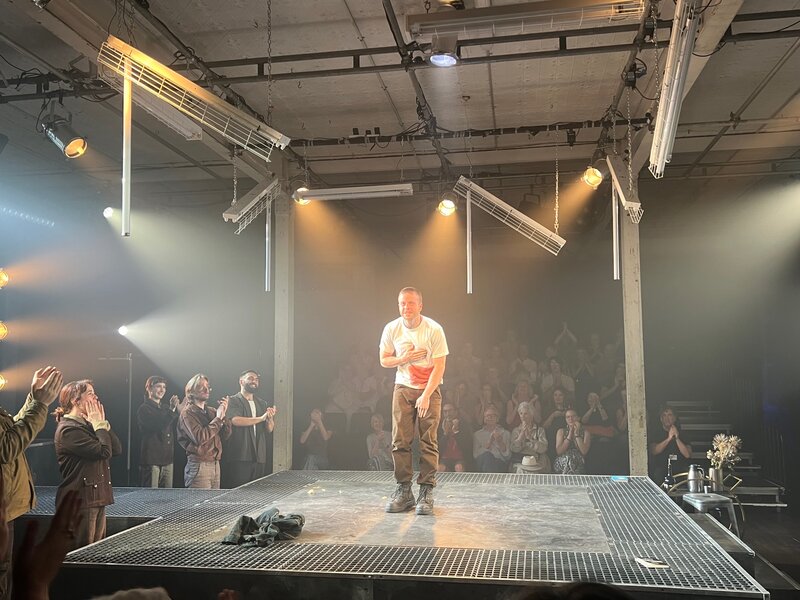Can someone who denies the Holocaust took place have any credence in a court of law? That is the question at the heart of Denial, based on the book Denial: Holocaust History on Trial, in which an American professor finds herself the defendant in a high-profile British libel trial that would impact the way the history of the Holocaust is told. This is a taut courtroom drama, based upon one of the most significant international legal cases in recent memory.

After historian Deborah Lipstadt’s (played by Rachel Weisz) book Denying the Holocaust: The Growing Assault on Truth and Memory is published in the UK, she is shocked to learn that British historian David Irving (Timothy Spall) is suing her for libel. Even more surprising to the US academic, under UK libel laws she is presumed “guilty” unless she can prove herself innocent. Lipstadt finds herself in the position of not only defending herself, but establishing that the Holocaust took place. Passionate, fiery and independent, Lipstadt refuses to settle the case and demands her day in court. Lipstadt’s British legal team, led by solicitor Anthony Julius (Andrew Scott) and barrister Richard Rampton (Tom Wilkinson), present her with a confounding strategy: neither she nor any Holocaust survivors will be called to the stand.
This is a powerful story about one woman’s relentless efforts to establish justice and remind the world about the tragedies of the Holocaust. Denial producers Gary Foster and Russ Krasnoff first became aware of Deborah Lipstadt and her work some eight years ago when their children were applying for colleges. Their preliminary research revealed that Holocaust denial was much more widespread than they’d realised. It was espoused by several prominent voices in the US and Europe, as well as throughout the Middle East – most notably by then president of Iran, Mahmoud Ahmadinejad.
David Hare (The Reader) is a brilliant screenwriter. He maintains that within Denial there was no need to fabricate dramatic moments. He says the dialogue from the courtroom scenes was taken verbatim from the official record. Hare also points to a real-life moment depicted early in the film in which Irving unexpectedly appears at a lecture given by Lipstadt in Atlanta and disrupts her speech. “He started waving $1,000 above his head and saying, ‘I’ll give it to anyone who can prove Hitler ordered the killing of the Jews!’ ” That became the noteworthy opening to the movie.
Denial is intelligent and thought provoking, involving learned souls on both sides of the argument, one of whom is an anti-Semite. The question becomes how does one prove the Holocaust happened when there are no photographs of the gas chambers because the Nazis made sure there were none taken. Furthermore, the only testing at sites like Auschwitz couldn’t conclusively establish that the killer gas in the brickwork was of the magnitude in use in other buildings that weren’t used to gas people.
What strikes you immediately are the verbal gymnastics involved. The performances of the key players are universally excellent, on occasions mesmerising. Individual character traits – be they sensible, measured, resilient or confrontational – are highlighted. Because this is process-driven, passion does not play a hand in the court verdict and that is certainly hard to take, especially for Holocaust survivors. Due to the nature of the subject matter it is very much a “talky talky” – much of it plays out in the courtroom or in preparation for court.
Directed by Mick Jackson (The Bodyguard), Denial provokes anger inasmuch as an issue such as this surely should never have been challenged in court in the first instance. And writer Hare shows yet again why he is such an gifted force. Rated M, it scores an 8 out of 10.
Director: Mick Jackson
Cast: Rachel Weisz, Tom Wilkinson, Timothy Spall
Release Date: 13 April 2017
Rating: M
Alex First

David Edwards is the former editor of The Blurb and a contributor on film and television




